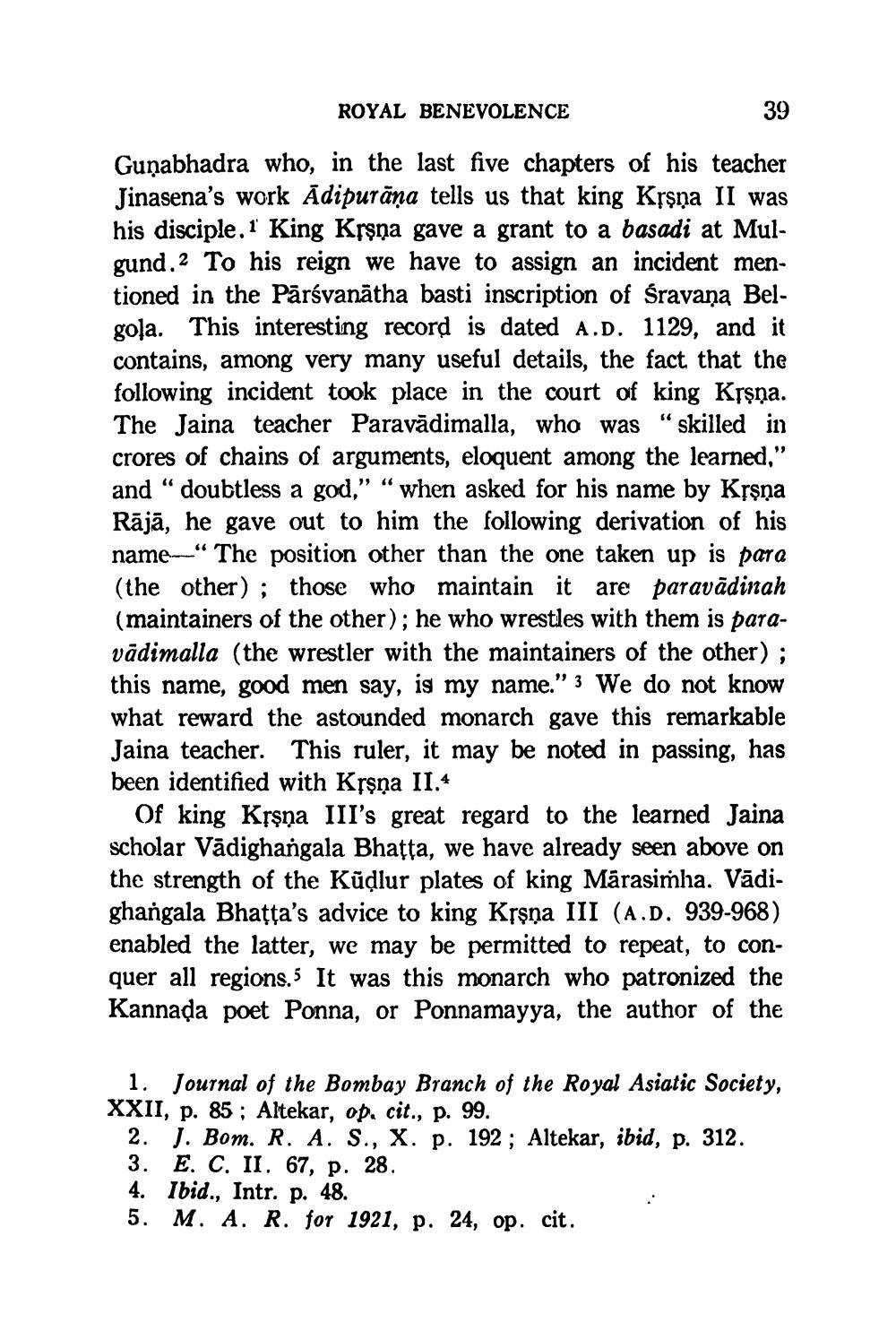________________
ROYAL BENEVOLENCE
39
Guņabhadra who, in the last five chapters of his teacher Jinasena's work Adipurāņa tells us that king Krşņa II was his disciple. 1 King Krşņa gave a grant to a basadi at Mulgund.2 To his reign we have to assign an incident mentioned in the Pārsvanātha basti inscription of śravana Belgola. This interesting record is dated A.D. 1129, and it contains, among very many useful details, the fact that the following incident took place in the court of king Krşņa. The Jaina teacher Paravādimalla, who was "skilled in crores of chains of arguments, eloquent among the learned," and “doubtless a god," " when asked for his name by Krşņa Rājā, he gave out to him the following derivation of his name-" The position other than the one taken up is para (the other) ; those who maintain it are paravādinah (maintainers of the other); he who wrestles with them is paravādimalla (the wrestler with the maintainers of the other) ; this name, good men say, is my name." 3 We do not know what reward the astounded monarch gave this remarkable Jaina teacher. This ruler, it may be noted in passing, has been identified with Krşņa II.4
Of king Krşņa III's great regard to the learned Jaina scholar Vādighangala Bhatta, we have already seen above on the strength of the Kūờlur plates of king Mārasiṁha. Vādighangala Bhatta's advice to king Krşņa III (A.D. 939-968) enabled the latter, we may be permitted to repeat, to conquer all regions.5 It was this monarch who patronized the Kannada poet Ponna. or Ponnamayya, the author of the
1. Journal of the Bombay Branch of the Royal Asiatic Society, XXII, p. 85 ; Altekar, op. cit., p. 99.
2. J. Bom. R. A. S., X. p. 192 ; Altekar, ibid, p. 312. 3. E. C. II. 67, p. 28. 4. Ibid., Intr. p. 48. 5. M. A. R. for 1921, p. 24, op. cit.




